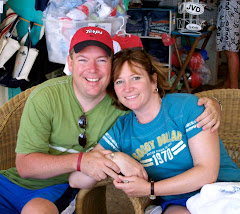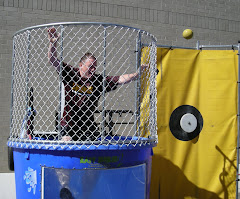Project-learning teaching strategies can also improve your everyday classroom experience.
By Tristan de Frondeville
Now, as I travel the country coaching teachers on how to successfully use project learning, my goal remains the same. And I try to teach educators the strategies they need to achieve this goal in their own classrooms.
A teacher in one of my workshops said, "When my students and I are in the flow, then I don't feel like I have to work as hard." I heartily agree. When 90 to 100 percent of my students are excitedly engaged in their tasks and asking deep and interesting questions, I experience joy, and joy is a lot less tiring than the frustration that comes with student apathy.
Project-based classrooms with an active-learning environment make such in-the-flow moments more common. Yet these same classrooms require many teacher and student skills to work well. As teachers, we can feel overwhelmed when we try something new and experience chaos instead of flow.
The good news is that the strategies for creating and managing high-quality project-learning environments are productive in any classroom, whether project learning is a central part of the curriculum or not. Here are ten ideas that you can start practicing in your classroom today to help you create more moments of flow.
Create an Emotionally Safe Classroom
Students who have been shamed or belittled by the teacher or another student will not effectively engage in challenging tasks. Consider having a rule such as "We do not put others downs, tell others to shut up, or laugh at people." Apply it to yourself as well as your students. This is the foundation of a supportive, collaborative learning environment. To learn and grow, one must take risks, but most people will not take risks in an emotionally unsafe environment.Create an Intellectually Safe Classroom
Begin every activity with a task that 95 percent of the class can do without your help. Get your students used to the fact that when you say, "Please begin," they should pick up a pencil and start working successfully. This gets everyone on the bus. Then make sure your students know that these initial easy tasks will always be followed by increasingly challenging ones. Create rich and complex tasks so that various students have a chance to excel and take on the role of helping others.Cultivate Your Engagement Meter
Be acutely aware of when your students are paying strong attention or are deeply engaged in their tasks. Master teachers create an active-learning environment in which students are on task in their thinking and speaking or are collaboratively working close to 100 percent of the time. Such teachers notice and measure not only when students are on task but also the quality of their engagement.Although it may take years to develop the repertoire of skills and lessons that enable you to permanently create this active-learning environment, you can begin by discerning which activities truly engage your students. The more brutally honest you are with yourself, the faster you will get there.
Create Appropriate Intermediate Steps
The first question I ask educators when I coach them on project learning is how many of their students say, "We can't wait to do another project," versus "Oh, no! Not another project." Teachers tend to get the first response when they scaffold challenging tasks so that all students are successful.For example, take the typical task of interviewing an adult outside the classroom. Some teachers assign the task on Monday and expect it to be done the following Monday, confident that by including the weekend, they are providing sufficient support. Other teachers realize that finding, cold calling, and interviewing an adult are challenging tasks for most young people, so they create intermediate steps -- such as brainstorming, searching online for phone numbers, crafting high-quality interview questions, and role-playing the interview -- that train all students for success.
To read more of Tristan's ideas visit Edutopia at http://www.edutopia.org/project-learning-teaching-strategies



















No comments:
Post a Comment